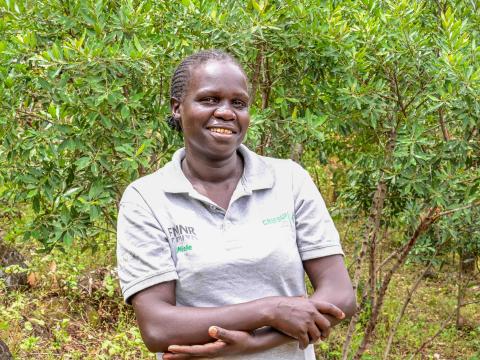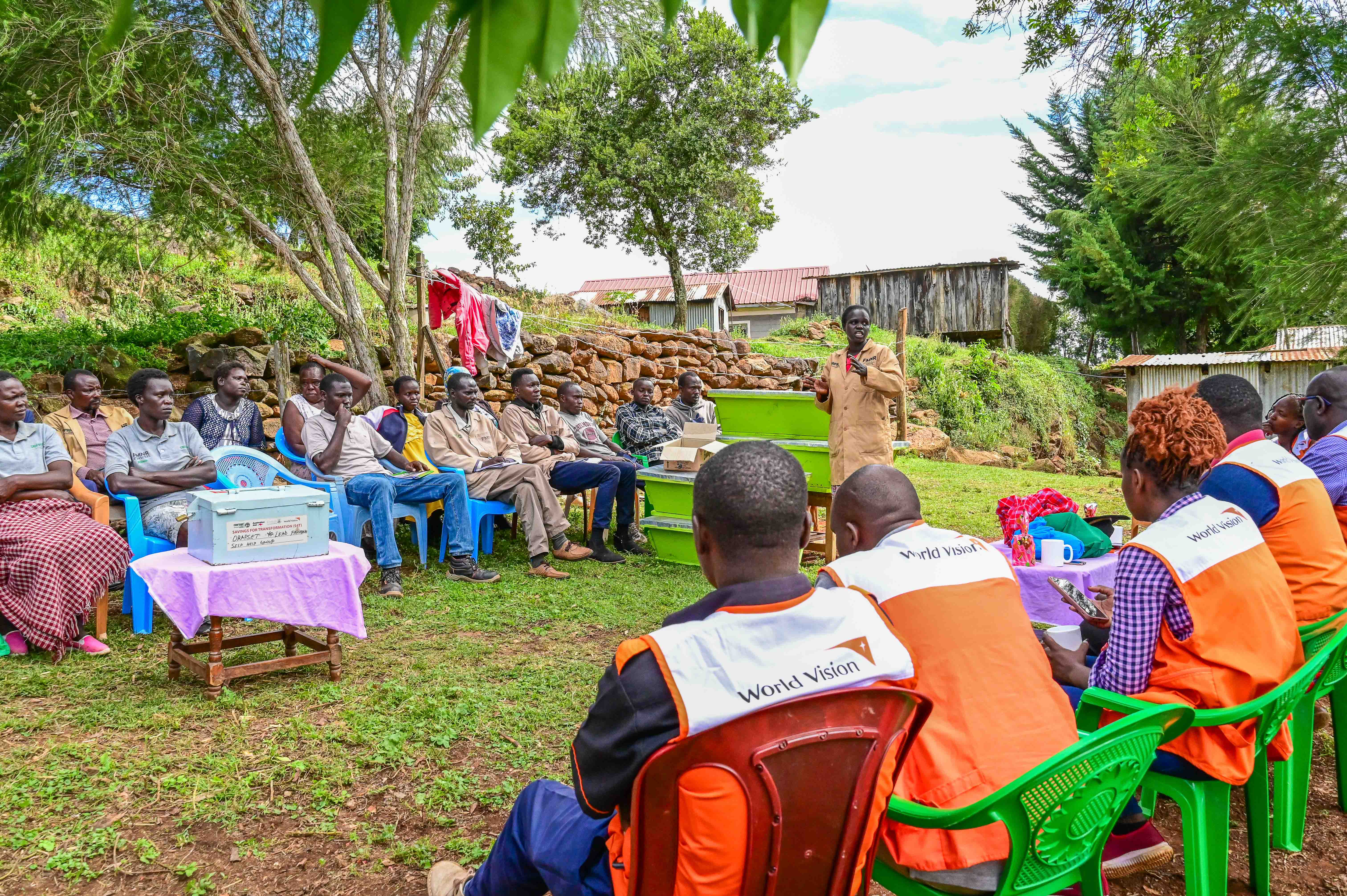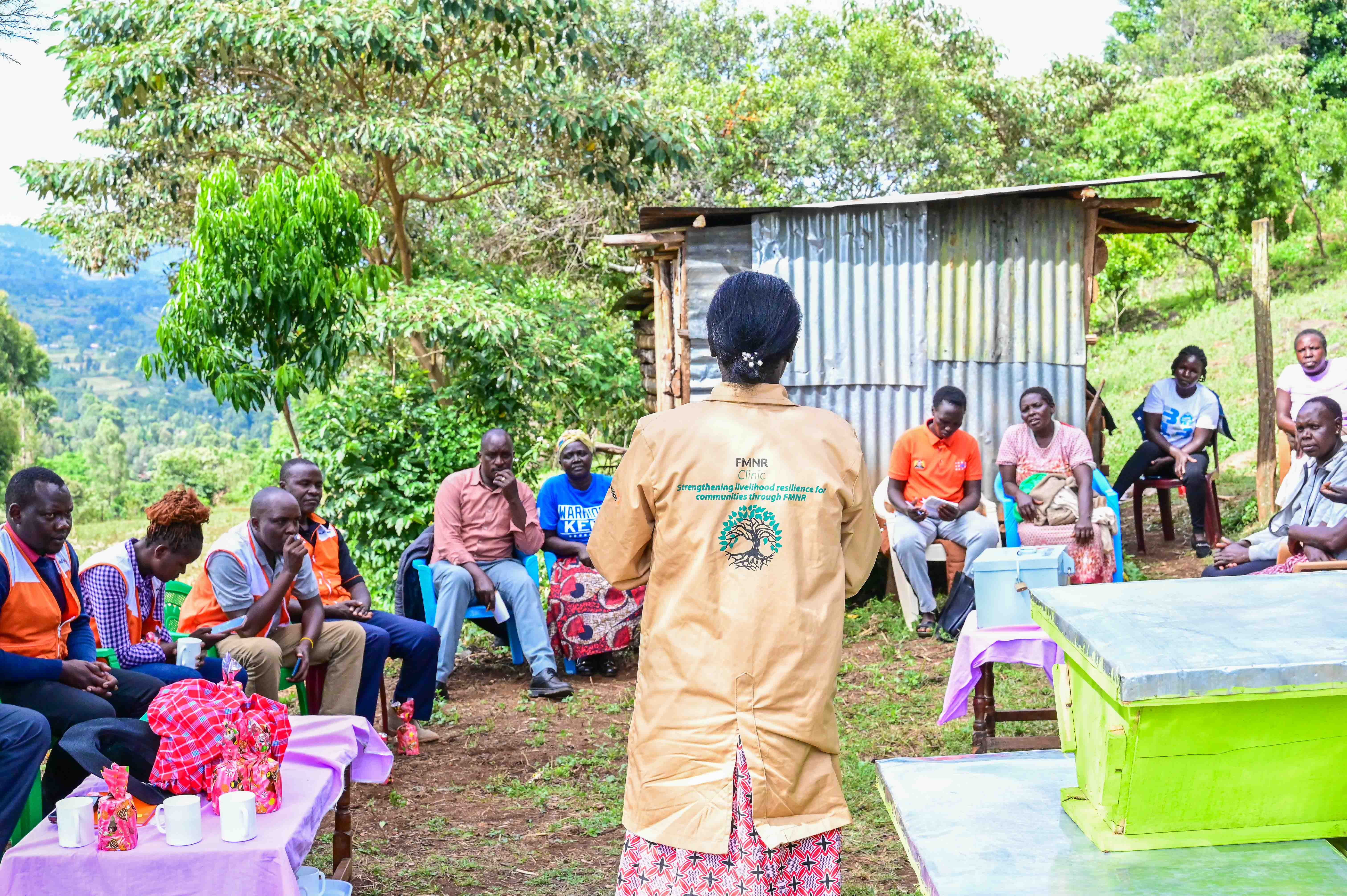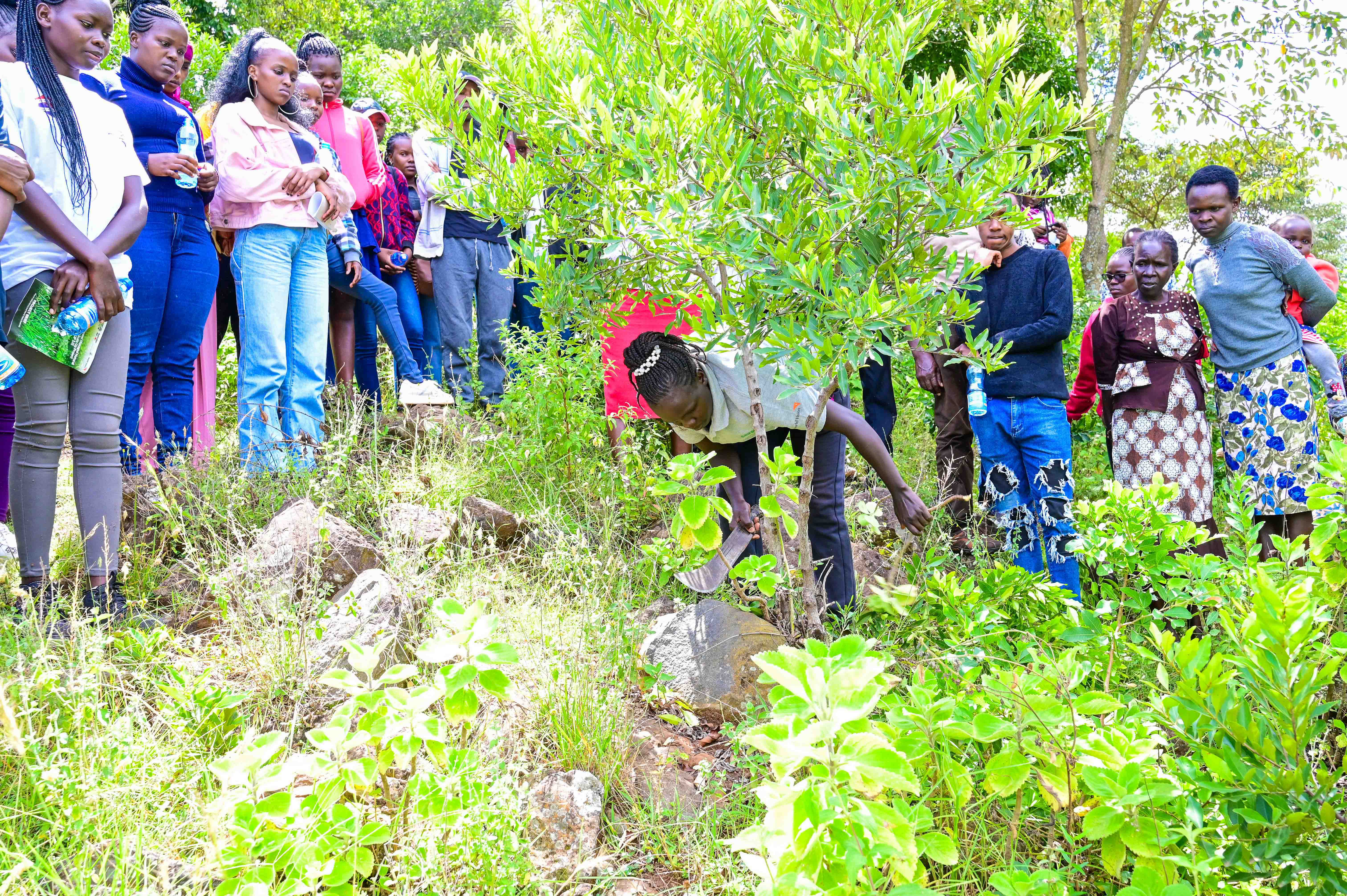Sowing Hope: How Sophia is Restoring Her Land and Community

There are people whose resilience and determination leave a lasting impression. One such person is Sophia Korir, a mother, farmer and environmental champion from Orapsang Village in Elgeyo Marakwet County. Sophia never imagined that a simple act like pruning could turn her life around.
In 2022, Sophia was chosen by her community to become a Lead Farmer in the Central Rift Farmer Managed Natural Regeneration Scale-Up Project (CRIFSUP). She admits that before her training on Farmer Managed Natural Regeneration (FMNR), she had little knowledge about the value of indigenous trees. Like many in her village, she would cut down trees to make charcoal and at times spend nearly an entire day fetching firewood deep in the forests.
“We didn’t know the value of indigenous trees. We cut them down because of our needs,” Sophia shares, “After the training on FMNR, that’s when we truly learned to care for and conserve our environment. The air is fresher, the soil is more fertile and we get firewood from our own farms without destroying trees.”
Sophia learned how to thin and prune existing tree stumps to encourage regrowth, a practice that beyond regeneration has brought peace to her family.
“Before, money brought conflict between my husband and I,” she recalls. “Now, we brainstorm together, whether it’s selling firewood, taking an S4T (Savings for Transformation) loan or harvesting honey. We are building our home together.”
With minimal income, there were times their children would be chased out of school due to lack of school fees, leaving them with a heartbreaking choice of either paying school fees or buying food. They also had difficulty accessing loans and mostly relied on selling their farm produce like maize or livestock in order to get money for school fees.

This has now changed since Sophia was exposed to more trainings enabling her improve her way of life. She claims that she is more open minded and knowledgeable thanks to World Vision trainings such as Gender Inclusive Financial Literacy Training (GIFT), Empowered Worldview, Savings for Transformation (S4T) among others.
Sophia has taken the transformation beyond her own farm and trained a remarkable 22 replicate farmers on FMNR, 13 of whom are fully practicing the approach. Among those benefiting from this ripple effect is Elizabeth, a herbalist who gathers indigenous medicinal plants from Sophia’s now-thriving farmland.
“In the olden days, medicinal plants were everywhere. Unfortunately, people cut down trees and they disappeared,” Elizabeth explains, “Thanks to FMNR, some of the medicinal species have regenerated. I can now collect herbs locally at a small fee, right from Sophia’s farm.”

Elizabeth learnt of this skill from her dad and grandmother. A skill that she now uses as a source of income and to benefit her community whenever one has an ailment.
For Fiska Kemboi, an Environmental Officer in Elgeyo Marakwet County, FMNR represents more than just land regeneration, it is a pathway to Disaster Risk Reduction (DRR).
“Mudslides are a major challenge here, worsened by deforestation,” Fiska says, “However, since the introduction of FMNR by World Vision, we have seen an increase in tree cover and noticeable reduction in these disasters. FMNR is a cost-effective, sustainable solution, especially for communities living along the escarpment where conventional tree planting has struggled.”

Sophia’s once-barren plot is now characterized by buzzing bees and honey from her three beehives, plenty of indigenous grass to feed livestock and regenerating native species. Her farm has become a learning hub, drawing the attention of curious minds eager to understand FMNR in action.
“I appreciate World Vision for the support and trainings. Now, I have people coming to my farm to be trained on FMNR,” Sophia says, “That alone tells me I have done something right and makes me proud of my work.”
Sophia’s journey of transformation and that of over 1,000 lead farmers in Kenya has been made possible through the support from the Australian NGO Cooperation Program (ANCP) that funds World Vision’s CRIFSUP project. This initiative has empowered communities to restore land and become more climate resilient.
By Hellen Owuor, Communications Specialist (CRIFSUP), World Vision Kenya